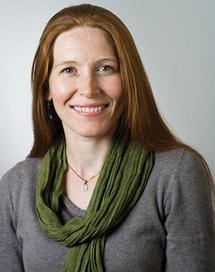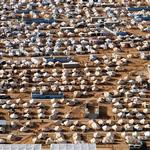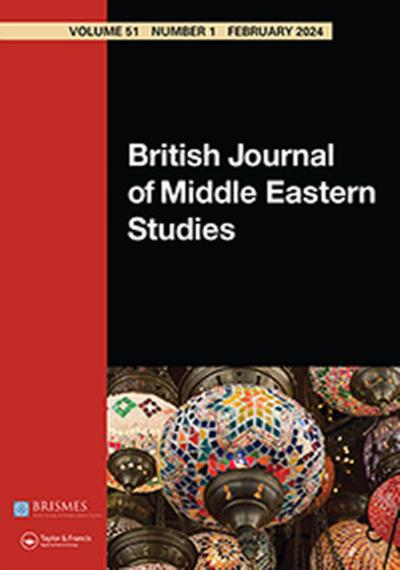Understanding the inferno on Lesbos: – We need new perspectives on migration to solve this situation
Why is ‘the (refugee) camp’ as we know it a problematic space?
The camp is problematic for many different reasons – and we know that historically also. The camp tends to move from being temporary to permanent –while its existence is legitimated by alluring to its state of exception. The camp is also undesired for humans, although very useful for some actors, including the state, because it is a place for both care and control.
To explain that in some more details with the example of Moria hot spot: In the EU’s migration and asylum policy, Greek territory, and in particular the islands in the eastern Aegean, were a place where migrants could both be protected and controlled. The migrants were to be taken care of there, seek asylum, and receive humanitarian aid. At the same time, the migrants were also to be controlled there and forced to seek international protection the moment they arrived in Europe. It is thus a system that is built around both “care and control” – at the same time, and a system that presents migrants as vulnerable and as dangerous. Refugees and other migrants are there both controlled, physically, and administratively, and abandoned.
Reception camps are to be temporary – but life in the Moria hotpots camp was long-lasting and was given a permanent condition without the rights of the camp’s residents being safeguarded. Hannah Arendt (1951) analysis of stateless population in the wake of World War II remains relevant: «The abstract nakedness of being nothing but human was their greatest danger” (300). The Italian philosopher Agamben has shown how the term “camp” is a form of power-technology that works by separating people: the camp, like camps for refugees, distinguishes between which people are given the right to have a life and be protected, and what human lives can be sacrificed.
The camp separates the “unwanted” or undesired from the rest of the population. These camps are often ‘exceptional spaces’ where certain subjects – people as subjects – are confined, held back, and temporarily “stuck” or contained. At the same time, the camps are a place where these people are reclassified and redefined into a kind of “biopolitical mass”. They are numbered and included in a regime with strict regulations for mobility and social interaction.
It is a regime that is legitimized and accepted by referring to its temporality – that it is not permanent, and that it – the camp, the regime – is an exception in an exceptional situation. On Lesbos, life in the camp went from being temporary, time-limited, to becoming more permanent. The control of the arrivals took place in camps that went from being a transit to the waiting zone (Agier 2010, 2011) – the camp became a liminal space that blocked people’s further mobility; when you go into these camps you do not know when you will come out again. The uncertainty about how long one will live in such a state of emergency is existential. The camp becomes a place where political repression, new principles of exclusion and confinement, new forms of categorization of people, separation, and custody are practiced.
But let me add that such a camp can also become, in some circumstances, a place where resistance, new forms of action, solidarity, care, and a new political identity develop. Despite all the violence and oppression perpetrated against them, or perhaps precisely because of it, such a gathering of people who happen to live together in a camp and are subject to a regime that shapes their sociality can also trigger – unintentionally – a new form of a political project, as a source of survival tactics. We see the political protest today at Lesbos by those stuck there.
You say that the inferno on Lesbos is a result of several concurring crises – what do you mean by that?
The inferno that takes place on the small island of Lesvos can be considered as a critical even in which we see several crisis, if we choose to call it that, coincide: the economic crisis that started a decade ago and that hit Greece hard, the corona crisis that hits differently and legitimizes an otherwise unacceptable policy such as closing in a population without sufficient access to food and health care.
A humanitarian crisis – people who have lived far too long with poor security, poor sanitation conditions, and a lack of hope that the situation will change. A European crisis: a crisis that shows a lack of solidarity within the EU/Schengen area, increased right-wing radicalism, and how the hotspot system and the Dublin agreement are dysfunctional. The overcrowded camp and its miserable condition were a symbol of a failed EU migration and refugee policy.
The island and its population also remind us of global crises, such as the civil war in Syria, and it shows very clearly a global systemic crisis – the camp in Moria is just one of many camps globally. It is part of a long story about people living and growing up in camps – fortunately, we are just not used to this happening in today’s Europe.
In your opinion, distinguishing between ‘migrants’ and ‘refugees’ is problematic. Why?
By saying or writing “Refugees and other migrants” – I as a researcher recognize that refugees are also migrants. ‘Migrant’ is a more collective term than refugee – there are many different motives and needs among those we call migrants.
A too strong distinction between migrant and refugee, as the UN High Commissioner for Refugees, argues for, is problematic. Jørgen Carling has pointed out that the rhetoric of ‘two kinds of people’ – migrants and refugees – undermines the humanitarian principles that should be our guide in response to crises. As Carling says – when people drown at sea or suffocate in trucks, our first question should not be “so, what category were they, refugees or migrants?” In public discussions, refugees are made those who deserve our help and sympathy, while migrants are linked to fortune hunters, profit-seekers, or neoliberal subjects who take advantage of opportunities.
The difference between refugees and other migrants is often attributed to the fact that the refugee is “forced to migrate” while the migrant “chose to migrate”. But for decades now, researchers have shown that this dichotomy is too simple. All potential migrants face a combination of different opportunities and limitations, and make decisions to migrate based on various underlying causes.
Some change the reason for migration along the way – perhaps he or she left the home country as an economic migrant, but was exposed to human trafficking along the way or other forms of violence, and thus has other rights.
A migrant from Mali who arrived in France may have left Mali for reasons other than fear of persecution, but ended up fleeing extreme danger in Lebanon. And a Syrian may have moved to Turkey and found security from the war, but the lack of future opportunities in an indefinite camp life may cause him to travel on to Europe.
So an inclusive definition of migrants recognizes that everyone who migrates may have a well-founded fear of persecution and have the right to international protection.
Perhaps this is a distinction between the role of the term for a researcher and an institutional body such as the UN High Commissioner for Refugees – after all their whole work and practice is built upon the distinction between migrants and refugees – and they very much use this distinction in their everyday work – to function and legitimate their existence.
For sure it is also important in the political work to improve the situation for refugees – and one can argue that the distinction is important to maintain to keep the rights of refugees. But this refugee term is tied up closely to who is making the decision about who is a refugee – which in everyday business is the independent state and the state’s interpretation – which is politicized. It is a legal distinction – providing people with a particular status – but that status is ultimately provided by the state. So we need here to make a distinction between how we use that category in a legal matter versus using it as an analytical and methodological category.
By questioning the distinction – analytically and empirically – as a researcher we as social scientists are not only refusing to take on the state’s definition of who is a refugee, but also open up for a broader understanding of how people are vulnerable in different ways and how the current border regime and politics are contributing to generating refugees of migrants who are on the move.
What are the immediate and most pressing changes Europe needs to make, in your opinion?
The Commission has said it will come with a new proposal for a migration system already on 23 September. I’m not sure if they can find the solution so quickly, as I think we need new perspectives on migration to solve this situation.
- clearly, the division of responsibilities of arrivals internally in Europe must be improved.
- End illegal push-backs operations at sea and on land carried out under the support of the EU.
- More focus on violence perpetrated against migrants, and work actively to ensure that border police, at national and at EU level (Frontex), comply with existing rules and rights migrants have.
- Reception camps, refugee camps must have a minimum standard.
- Independent representatives must have access to these various camps to monitor the material and legal situation there.
- The EU should launch a system whereby migrants can legally seek work in Europe.
- Stop portraying migration and migrants as a risk. The EU should move away from its focus on security and control, and focus more on changing structural inequality globally, and its role in violence and war that are helping to create migration.
- The focus must be on ensuring that asylum procedures are not only faster but also fair and correct.
- Re-evaluate the implementation of the Asylum Act and its application and ensure that human rights and the Refugee Convention are respected
When that is said – we might also have to recognize the limitation of right-oriented solutions.
Researchers have also suggested that Human Rights and their application can also be a double-bind. Rights have the potential for different ways of governing subjects. We also must pay attention to how rights operate, as Sokhi-Bulley has suggested. This idea is inspired by Foucault’s argument that rights are not good or bad, they are dangerous. For example, rights can be used as ways to measure and produce normalized identities and particular forms of behavior. Rights can be used for different kinds of purposes. Wendy Brown has called our attention to how rights often appear for subordinated groups as “that which we cannot not want.”: “rights almost always serve as mitigation – but not a resolution – of subordinated powers.” This creates the paradoxical situation that the more specified the rights are for a specific group, the more likely they are to cement the definition of that group as subordinate and vulnerable.” Right discourse can thus be a way through which to govern. – which means that we always need to be on our toes– there are risks involved both with struggling the rights-logic and with refuting rights altogether.
The interview above is based on Associate Professor Synnøve Kristine Nepstad Bendixsen’s participation in a University of Bergen roundtable debate on the Moria fires. Blog post undertaken as contribution to PROTECT project with University of Bergen and was first published on their website. Re-published with permission.






